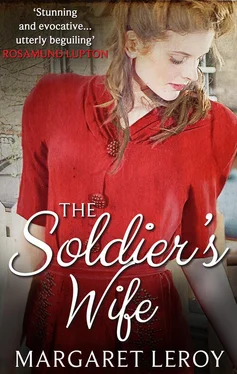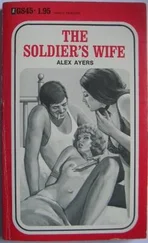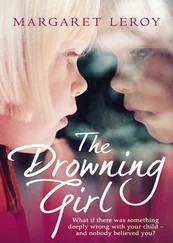1 ...8 9 10 12 13 14 ...19 I leave her sitting alone by her hearth, wringing her hands as though she is wringing out cloth.
I cook tea for Evelyn and the girls, though I can’t eat anything. Then Blanche helps me bring the girls’ mattresses down from their rooms, and I make up beds for both of them in the narrow space under the stairs. This is the strongest part of the house, its spine.
‘Look,’ I tell Millie, trying to keep my voice casual. ‘Tonight you and Blanche will be camping under the stairs. I’ve made you a den to sleep in.’
She frowns.
‘Is it so we won’t get killed? When the Germans come and bomb us?’
I don’t know what to tell her.
‘It’s just to be on the safe side,’ I say vaguely.
I decide to leave Evelyn in her room—I know I couldn’t persuade her to sleep in a different place. And I think I too will stay upstairs: I can’t believe I’ll sleep at all, and even if I do doze off, if anything happens I’ll wake.
I sit at the kitchen table, light a cigarette. I remember that there’s some cooking brandy in the kitchen cupboard; it’s left over from Christmas, when I put some in my mince pies. I don’t drink alcohol often, but I pour myself a glass. The brandy has a festive smell, which feels troublingly wrong for the day, but I feel a little calmer as the drink slides into my veins, all my sadness blurring over.
I sit there for a long time, smoking, drinking, my body loosening, trying not to think. At last I get up to go to bed. As I take the glass to the sink to wash, it simply slips from my hand, falls to the floor, shatters. The dangerous sound of breaking glass triggers something in me: I suddenly find I am weeping. I sob and sob, as I kneel on the floor and sweep up the glittery shards. I feel as though I will never stop weeping.
I check on the girls before I go up to my room. Blanche is asleep but Millie’s eyes are wide open; the light is still on in the kitchen, and slivers of gold from the half-open door reflect in the dark of her eyes.
‘Mummy, they’re going to kill us, aren’t they?’ she says, in a hissing, melodramatic whisper, so as not to wake Blanche. ‘They’re going to come in the night and bomb us to bits.’
‘No, sweetheart. I don’t think they will.’
‘Why are we sleeping here, then?’ she says.
‘We’re just being sensible,’ I tell her.
She gives me a doubtful look.
I lie awake for a long time. Nothing happens. There are no planes: all I hear is the creaking of my house as it settles and turns in its sleep, and outside the deepening quiet of the Guernsey summer night, depth on depth of quiet. But my anger keeps me awake. I feel a blind, furious rage—rage against this violence, when there weren’t any soldiers here, when we couldn’t fight back. I think how they slaughtered Frank like an animal—Frank who I didn’t much like, who maybe wasn’t such a good man, but who shouldn’t have died, who was too young to die, and who died such a terrible death. How they could come in the night and kill my children. How they will walk in, enslave us, take our island for their own.
I sleep for a while, and wake again, with a start, as though something disturbed me. I get up and go to the window. The moon hangs down like a fruit, and moonlight whitens everything. It’s so bright there are exact leaf-shadows on my gravel, and the hollyhocks in the flowerbeds of Les Vinaires next door are pale, almost luminous—ghost flowers.
I press my face to the pane. All the anger has left me. There’s a cold sweat of fear on my skin. I think—What have I done? We could be in London, in Iris’s house. Have I made the worst mistake of my life? Oh, my God—what have I done?
Sunday evening. I weed my garden while Millie plays on the lawn. She tries to make a daisy chain, but her fingers aren’t yet clever enough and the stalks keep splitting right through. She leaves the daisies lying there, and plays for a while with her ball, practising throwing and catching. The ball is striped with colours and makes a vivid blur as it falls.
The day cools as the sun sinks down. I pull my cardigan close around me. Evenings can be cold on Guernsey, even in high summer—there’s often a freshness in the air, a chill that blows off the sea. A little movement of air shivers the leaves of the mulberry tree, and shadow clots and thickens beneath the elms in the hedge that shield the top part of our garden from the garden of Les Vinaires. The sky is purple as amethyst and streaked with rose-coloured cloud, and I can hear a nightingale in my orchard over the lane, its song spilling out like bright water-drops.
A distant growl of aircraft noise disturbs me. I look up. Six planes are circling in the sky above us. I can see the markings on them. I know they are German aircraft.
The pier is in my mind—the bombing, the shooting, the blood. My heart lurches.
‘Millie. Come indoors at once.’
She doesn’t move.
‘Millie!’
‘But my ball just went over the hedge. It was my best ball, Mummy …’
‘Do as I say,’ I tell her. ‘Go to the den we made under the stairs. Go this minute. ’
‘Is it the Germans? Will they kill us?’
‘Just do as you’re told, Millie.’
I call to Blanche from the passageway but she doesn’t seem to hear. I rush upstairs. Music spools down from her bedroom: she’s playing Irving Berlin on her gramophone. Cheek to cheek. I rush straight in, without knocking. She’s standing in the middle of her bedroom floor, startled, slightly shame-faced. I briefly wonder if she’s been dancing in front of her mirror, practising moves, as I would do at her age: conjuring up a shiny, scented future, and a louchely handsome partner to hold you close in the dance.
‘There are German planes coming over,’ I say. ‘Go to the den with Millie. Now.’
‘But my record …’
‘Blanche, just go,’ I tell her.
She hears the edge in my voice. She leaves the gramophone, races downstairs. As I follow, I hear the disconsolate sound as the music slows and runs down.
Evelyn is in her armchair in the living room, knitting.
‘You should go and shelter with the girls. You’d be safer there,’ I tell her.
She doesn’t get up. Her sherry-brown gaze flicks briefly over my face.
‘There’s no need to worry, Vivienne. You always were a worrier …’ She speaks so slowly, each word precisely enunciated. I’m frantic with impatience. ‘You always did get yourself in a state over every little thing.’
‘This isn’t a little thing, Evelyn …’
She ignores this, goes on knitting. Her face is still, unmoved, as though nothing I’ve said has touched her. There’s a sound like screaming in my head.
She clears her throat.
‘Eugene always says as much. Worry, worry, worry. ’
I tell myself that she doesn’t mean to criticise. That she doesn’t really mean some of the things she says any more.
‘Just come and shelter,’ I say.
‘I’m not going to hide away, Vivienne. I’m hurt that you thought that I would. Somebody’s got to make a stand.’
‘ Please , Evelyn. Just in case something happens …’
‘I’m not going to let the Hun move me about,’ she tells me. ‘Where would we be if everyone did that?’
There’s nothing more I can say to persuade her. I leave her in her chair.
I watch the planes from the window. They fly low, towards the airfield, and vanish beyond the wooded brow of the hill. They must have landed. I watch the sky for a long time, as the west flares red with sunset, then deepens to a lingering indigo dark; but they don’t take off again.
In the end I tell the girls to come out from under the stairs. I wonder if it has happened: the world cracked open.
Читать дальше












